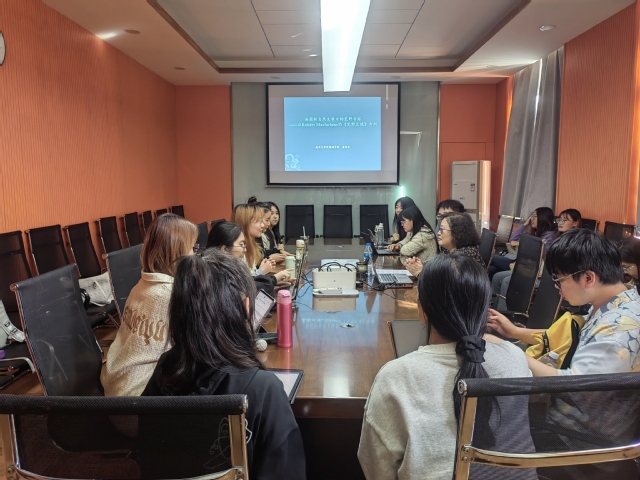On October 19, a seminar hosted by the Graduate Work Department of the Party Committee and undertaken by the Academic Department of the Graduate Association of the College of Foreign Languages was held in meeting room 139 of the College. Associate Professor Cui Lifang, Master Supervisor of the College of Foreign Languages of Nankai University gave a lecture titled “Wilderness in British New Nature Writing”. In the meeting, attendees including master's and doctoral students communicated and discussed this topic and received great inspiration.

During the lecture, Dr Cui began with the definition of wilderness and gave an introduction to the wilderness culture in America and the wilderness landscape in Britain. Subsequently, she related that concept to the landscape and national identity in the British context, emphasizing the role of natural scenery in the construction of British national identity. Then, focusing on British wilderness, she analyzed the deep connotation of wilderness from two aspects: fictional literature and non-fiction traditional nature writing. In British fictional literature, legends, romanticism, realism, and modernism are common elements; while in non-fiction literature, naturalistic observation and research on phenology connected traditional natural literature with the countryside and rural regions closely. In addition, Dr Cui recommended books including The Natural History of Selborne to students for them to further understand the idea of wilderness.
Meanwhile, Dr Cui switched her perspective to British new nature writing, namely the non-fiction nature writing which gradually revived in the 1980s and 1990s. She listed 30 representative texts including Underland: A Deep Time Journey, which witnessed the vigorous development of the new nature writing. Then she introduced many characteristics of wilderness in British new nature writing: As a kind of poetic writing featured by unity of knowledge and practices, wilderness inherited regionalism and indigenization in traditional writing, emphasizing the experience in wilderness and explaining the complex relationship between human and nature. It reflected the characteristics of postmodern narrative. For example, Robert Macfarlane, the author of The Wild Places, was a representative in this field. He enhanced his understanding of wilderness through his personal practices and expressed his view of wilderness in his works.
At the end of the lecture, Dr Cui elaborated on the reconsideration of the concept of wilderness in the United States academia in the second half of the 20th century. For instance, environmental historian, William Cronon’s discussion on the wilderness dilemma urged people to pay more attention to the “wild”. An eco-poet Gary Snyder’s view of wilderness encouraged people to explore more about the balance between man-made space and the natural environment. However, the disputes and criticism of new nature writing among media, readers, and writers never ended. It was in the questioning and appreciating that British new nature writing showed its rich cultural connotations and embodied unprecedented social significance. With unique aesthetic value and enlightenment in ecology, British new nature writing raised people’s awareness of environmental protection and encouraged the public to do diversified research on wilderness to find its meanings.
In the end, students delightedly exchanged their gains and further discussed the relationship between man and nature in new nature writing. Dr Cui also sent good wishes to all attendees, hoping that nature and the wild could always be their companionship.



